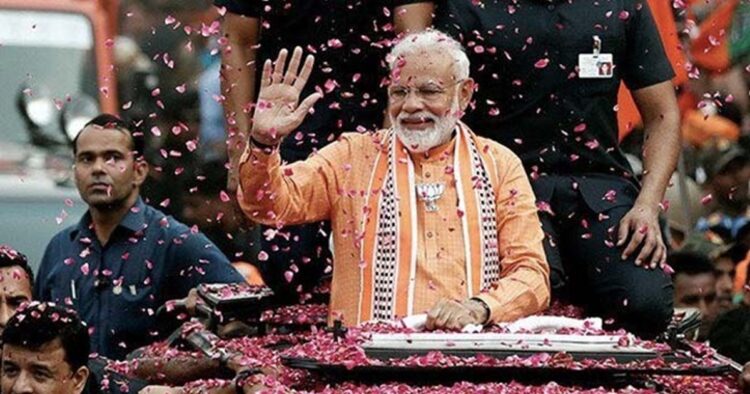In a resounding victory, Prime Minister Narendra Modi secured the Varanasi Lok Sabha seat for the third consecutive time, defeating his closest rival, Uttar Pradesh Congress president Ajai Rai, by a significant margin of 1,52,513 votes.
Modi garnered a total of 612,970 votes, which accounted for 54.24% of the total votes cast, while Rai received 460,457 votes, amounting to 40.74%.
Varanasi, one of the 80 parliamentary constituencies in Uttar Pradesh, saw Modi emerge victorious in the final and seventh phase of the Lok Sabha elections held on June 1, 2024. Notably, Modi has been elected twice before from Varanasi and has served as the Prime Minister of India during his tenure.
Election Results 2024 LIVE Updates
The 2019 Lok Sabha elections witnessed Modi securing an impressive 63.62% of the votes, winning by a significant margin of 674,664 votes against Shalini Yadav of the Samajwadi Party. Varanasi’s constituency is categorized as a General category parliamentary seat.
PM Narendra Modi secures Varanasi Lok Sabha seat for the third consecutive time, defeating Congress' Ajay Rai by 1,52,513 votes. #Varanasi #LokSabha #ModiWins #UttarPradesh #ElectionResults #Modi #LokSabha2024 #BJP #PMModi #AjayRai pic.twitter.com/NwiReKVwgU
— Ritam English (@EnglishRitam) June 4, 2024
The electoral battle in Varanasi was marked by high-profile campaigning, with leaders such as Narendra Modi himself conducting roadshows in the constituency. Despite facing six other candidates, Modi’s main challengers were Congress’s Ajay Rai and Ather Jamal Lari of the Bahujan Samaj Party.
In the 2014 Lok Sabha polls, Modi defeated Delhi Chief Minister Arvind Kejriwal with 56.37% of the votes.
Over his ten-year tenure, Narendra Modi has spearheaded the multifaceted development of Varanasi. His flagship project, the Kashi Vishwanath Corridor, has significantly bolstered the city’s economy and infrastructure.
Modi’s political journey, which began as an RSS pracharak in 1971, has seen him progress through various roles within the BJP, including serving as the Chief Minister of Gujarat from 2001 to 2013 before assuming office as the Prime Minister in 2014.
For his third term, Modi has set ambitious goals for India’s development, aiming for a developed nation by 2047. Known for his captivating oratory style, Modi connects with the public by portraying himself as a grassroots worker with a humble background.
His popularity as a capable leader extends internationally, and he is credited for significant policy decisions such as the abrogation of Article 370 in Jammu and Kashmir and the construction of the Ram Temple in Ayodhya.
Modi’s electoral triumph in Varanasi underscores his continued political dominance and sets the stage for further initiatives aimed at driving India towards prosperity and development.

















Comments